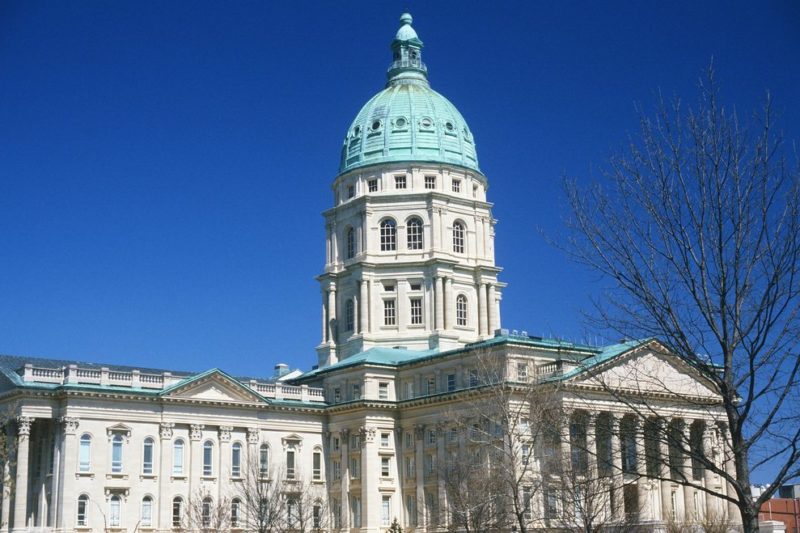Conservatives Target State Courts in Battle Over Culture Wars
A fight in Kansas over the future of the state judicial system shows anti-choice conservatives want control at every level of government and will stop at nothing to get it.

There’s a court battle over abortion taking place in Kansas, but it’s probably not the fight you think. Anti-abortion activists in the state are slowly and systematically trying to “reform” the state judicial system in an effort to give conservatives greater control over the courts. And as state courts play an increasingly important role in the battle over reproductive rights and the policing of pregnancy, these so-called “reforms,” if successful, could be more devastating to women than the deluge of anti-abortion laws enacted in the state so far.
Kansas House Judiciary Committee Chairman and staunch anti-abortion activist Lance Kinzer closed out the legislative session with a flurry of proposals aimed at limiting the influence of the state’s supreme court. The proposals follow a growing rift in the state between the extremely conservative legislature and the state supreme court that has thwarted conservatives on education funding, the death penalty, and, of course, abortion.
One of the reforms proposed last month would amend the state constitution to have the governor appoint and the state senate confirm members of the state’s supreme court and appeals court. This reform eliminates a commission that currently screens applicants and names three finalists for judicial vacancies for the governor to consider. Five of the commission’s nine members are attorneys elected by other attorneys, and under the current system in Kansas the state legislature plays no role in judicial appointments. The proposals also bookend a legislative session that started with Republican Gov. Sam Brownback signing legislation granting Kansas governors greater influence over selection of judges to serve on the Kansas Court of Appeals but failing to eliminate the nominating commission.
Anti-abortion efforts to overtake all branches of government are nothing new, especially in Kansas, where Operation Rescue supporters sit on the state’s Board of Healing Arts, the administrative agency that regulates health-care and abortion services. But this year’s focus on the courts represents a fresh take on the strategy, and one that is clearly and unapologetically political. And it’s one that comes at a time when local prosecutors are warming to the idea of prosecuting women for miscarriage and pregnancy loss and when state courts are proving instrumental in those misguided efforts.
If you want an idea of what the proposals floating in Kansas would look like, consider the current battle over judicial appointments in Washington, D.C., where conservatives have all but entirely blocked the president from filling judicial vacancies. That has left the federal courts barely functioning and those candidates that have been confirmed so thoroughly vetted one has to wonder how many excellent candidates are passed by simply because their confirmation would be too great a political battle. Apply this model to state politics, where the battles are more personal and the political lines more entrenched, and you’ve got a pretty foolproof way to insulate the judiciary from having to do its job of checking and balancing the other branches of government.
Much like the battle over the judiciary in Iowa and a similar fight in Florida following rulings in favor of same-sex marriage and Obamacare, the fight to install conservative gatekeepers within the states’ courts of appeals and supreme courts is about consolidating power in response to judicial pushback to the Tea Party agenda that seeks to consolidate corporate power and roll back all gains from the civil rights movement. So far those efforts have had mixed success in the federal courts, which is why conservatives are now pushing so hard to revamp state judicial systems across the country. And with a host of marquee culture-wars issues before the Supreme Court and working their way through the federal appellate courts, and with more and more once-solidly conservative voting districts in key states like Virginia and Texas trending purple, we can expect to see conservatives pay even more attention to state courts in the next legislative session.

